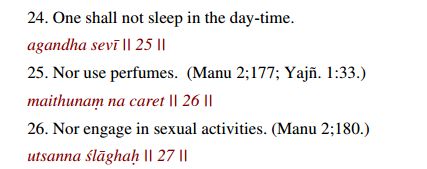Below are few reasonable reads
on this topic:
https://www.speakingtree.in/allslides/according-to-religious-texts-if-a-couple-gets-intimate-at-these-times-it-leads-to-poverty-and-misery
https://www.speakingtree.in/allslides/never-have-sex-in-these-places-as-per-shastras
Above two links depicts the circumstances during which binds humans unknowingly bind sins rather than the activity itself.
Rather than the activity although involving all 5 senses at the same time, the act of watching a women with bad intent is considered a grievous sin in hinduism, christianity and islam- which religion the person belongs doesn't matter.
Christianity: https://christianity.stackexchange.com/a/52/49996 "The root of the matter is lust.
**Matthew 5:28 But I say to you that everyone who looks at a woman with lustful intent has already committed adultery with her in his heart.
I would say that the act itself is not the sin, it's the intent of the act."**
Hinduism:
Lust is described as a root toxin in Hinduism, followed by anger, greed, materialistic attachments {Kaam, krodh, lobh,moha).
Chapter 3: Karma-yoga TEXT 37 Sri-bhagavan uvaca kama esa krodha esa rajo-guna-samudbhavah mahasano maha-papma viddhy enam iha vairinam
God said: It is lust only, Arjuna, which is born of contact with the material modes of passion and later transformed into wrath, and which is the all-devouring, sinful enemy of this world.
Thus, it's always best to protect ourselves to prevent the cause of bad happenings by avoiding looking at females with bad intentions. Sin committed by thoughts: It is well-understood that nothing is hidden from God, not even our thoughts, so even if we plan devious activities in our mind, is accountable as a sin. Holding filthy conversation or hurling dirty comments towards a pregnant woman, or a woman on her periods, is a grave sin. Involving in acts of violence or uncivilized activities against, children, woman and any weak creature, is an unforgivable sin in the eyes of God.
Islam advises-
It is incumbent on women and girls to observe ḥijāb; it is equally incumbent on men to avoid looking in ḥarām way and keeping away from mixing with the opposite sex, which normally leads to temptation and corruption.As a matter of obligatory caution, one should not view pictures of non-maḥram women on television that are broadcast live. As for that which is not broadcast live, there is no problem in it provided it is done without ill intentions and the fear of falling in ḥarām.
Accordingly, there is no objection to it, as per Islamic law, if it is not done with lust, evil intention, and does not lead to a bad result. However, since watching obscene pictures is inherently intertwined with looking with sexual urge, and it is a precursor to committing ḥarām acts, it is, therefore, ḥarām.
Thus, the scriptures wants to protect the mentality of humans towards females, who have obtained the gifted body to play the role of nurturing mothers on the earth, which is a godly task in itself.
Note:
Shrimad Bhagawad Geeta Adhyay 14 Shlok 4:
SarvayoniShu Kaunteya MurrtayaH SaMbhavanti YaaH | Taasaam Brahma Mahat YoniH Aham BeejapradaH Pitaa ||
Whatever forms (of beings) are produced in all wombs, O Arjuna, the great Brahma (Prakriti i.e. the matter at large) is their womb (mother), while I am the seed-giving father to all beings.
The eightfold nature, O son of Kunti, is the mother that bears all the beings of different births and I am the father that casts the seed.
As per above sloka, humans shouldn't take pride in unhealthy way by thinking that they are parents, but actually God is the ultimate father, we are just serving as his instruments, so therefore,in arrogance and ignorance prior marriage one shouldn't take joy in wasting preciously rich sexual energy, as it can be a medium to better serve the holy purpose God described in the Bhagwad Gita-
Chapter 10: The Opulence of the Absolute TEXT 28 ayudhanam aham vajram dhenunam asmi kamadhuk prajanas casmi kandarpah sarpanam asmi vasukih
TRANSLATION Of weapons, I am the thunderbolt; among cows I am the surabhi, givers of abundant milk. Of procreators I am Kandarpa, the god of love, and of serpents I am Vasuki, the chief.
Purport for kandarpa: Kandarpa is the sex desire for presenting good sons; therefore Kandarpa is the representative of Krsna. Sometimes sex is engaged in only for sense gratification; such sex does not represent Krsna. But sex for the generation of good children is called Kandarpa and represents Krsna.
So, true contentment lies in keeping away from toxic habits through right knowledge rather than thinking whether one will be considered sinful by doing this or that...

